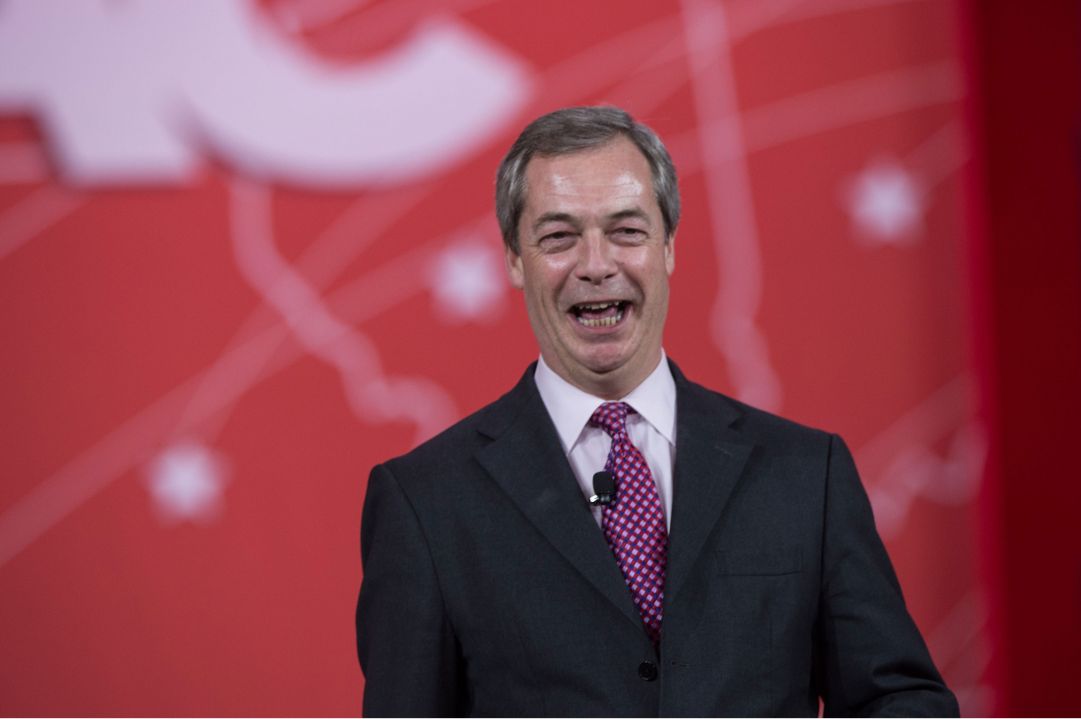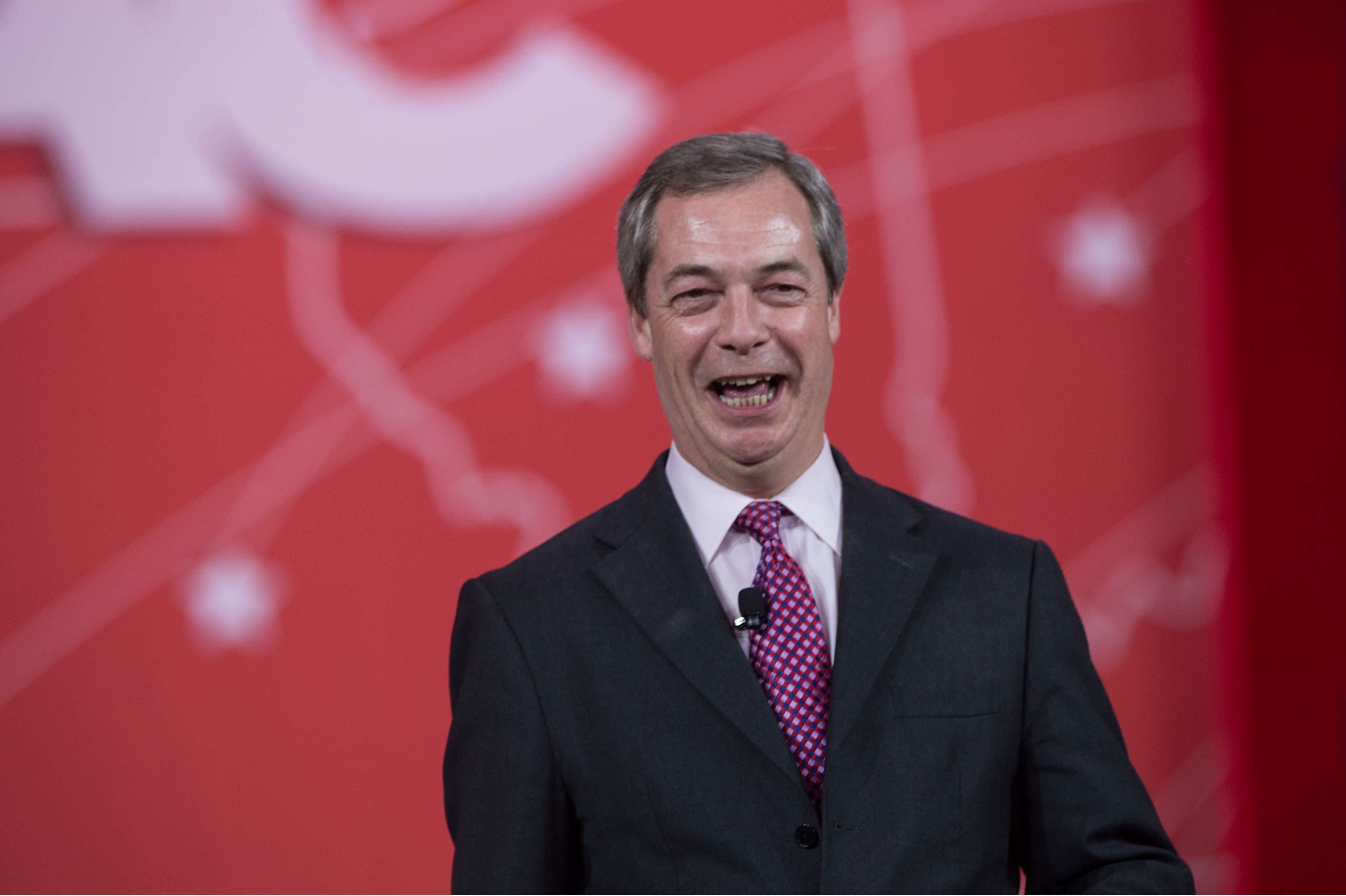Nigel Farage’s speech to the Ukip conference was fine. Not a bad speech, but not his best speech, either. It was just fine. Activists seemed happy, ecstatic, even when he came on, and were joyful chanting when he left the stage too. But Farage clearly wanted to answer a number of questions about his own position.
The Ukip leader started by pointing out that there had been a number of questions about his whereabouts, and that some of his opponents had tried to spread some unpleasant rumours that he was unwell (there have been some rumours circulating in Westminster to that effect, though it’s unclear where they originated from). ‘Rumours of my demise have been greatly exaggerated,’ he announced to the conference, adding that ‘I’ve been here in Thanet, working with an active local branch.’ He then pointed to the poll showing him 11 points ahead in the constituency.
Towards the end of his speech, the Ukip leader said he hoped to lead his party not just into this election, but into the ones after it, listing local elections, elections in Wales, and so on, though he didn’t mention the 2020 election specifically. It is interesting that he felt the need to make any of these points about his leadership. It suggests Ukip has not had as good a start to the year as it might have hoped.
Cheers at the end of Farage’s speech https://t.co/SnCa1cpFLB
— Isabel Hardman (@IsabelHardman) February 27, 2015
His speech was also, naturally, a rallying call to the party for the election it was about to experience. He told them that the next 68 days would be difficult, warned them that they would get more abuse than they’d ever experienced before, and that they had few friends in the media. But he also thanked the Express for its support, leading to applause for a newspaper on the floor of a party conference (something that rarely happens, though the Spectator did get a round of applause at last year’s Labour conference, of all places). So even this ‘our opponents will throw everything at us’ section wasn’t quite as aggressive as it has previously been, which is interesting as minor parties often exaggerate the extent of opposition in the media in order to rally their bases with the idea that the Establishment is out to get them.
There wasn’t a big defection to unveil at the end of the speech, which inevitably meant the whole session was less exciting than the one Farage gave in the autumn. The party is now having to knuckle down to the difficult grind of winning seats in a General Election, which requires organisation and a good strategy for allocating resources to the right seats, as well as taking them away from unwinnable fights or ‘safe’ seats such as Clacton. This kind of thing doesn’t elicit a standing ovation, but it will be essential for the ‘famous victory’ that Farage expects from his party this May.








Comments